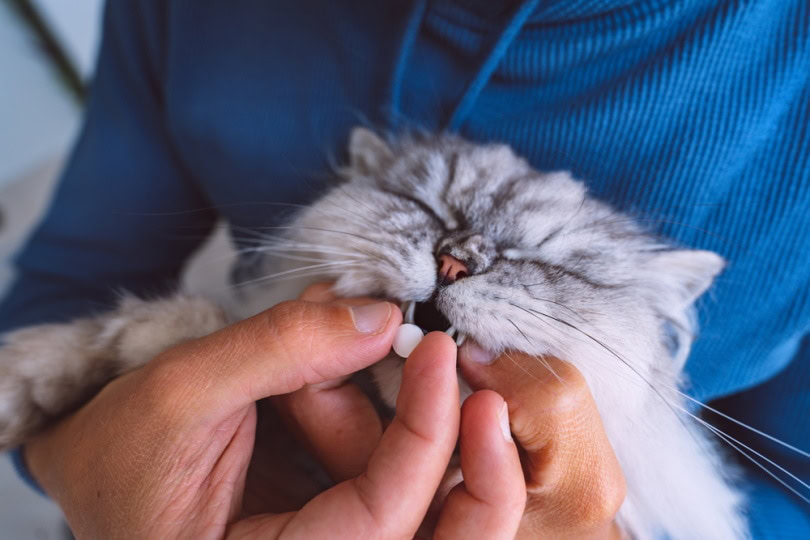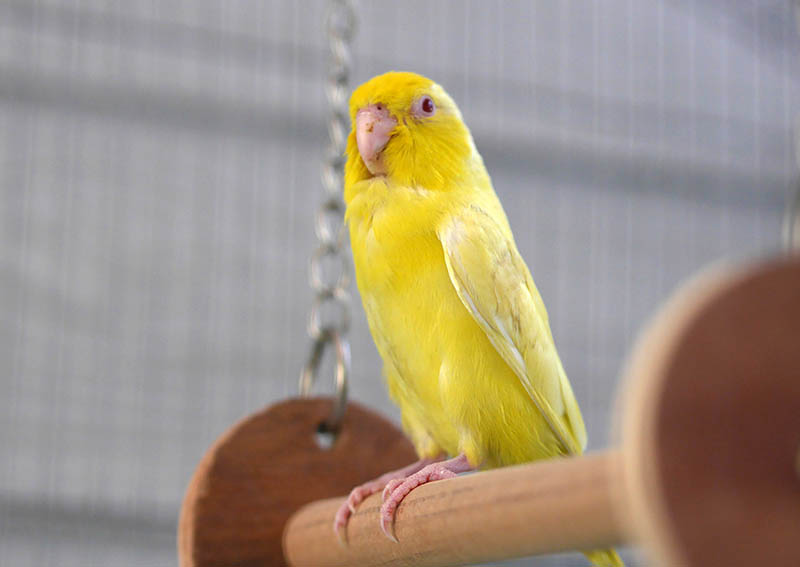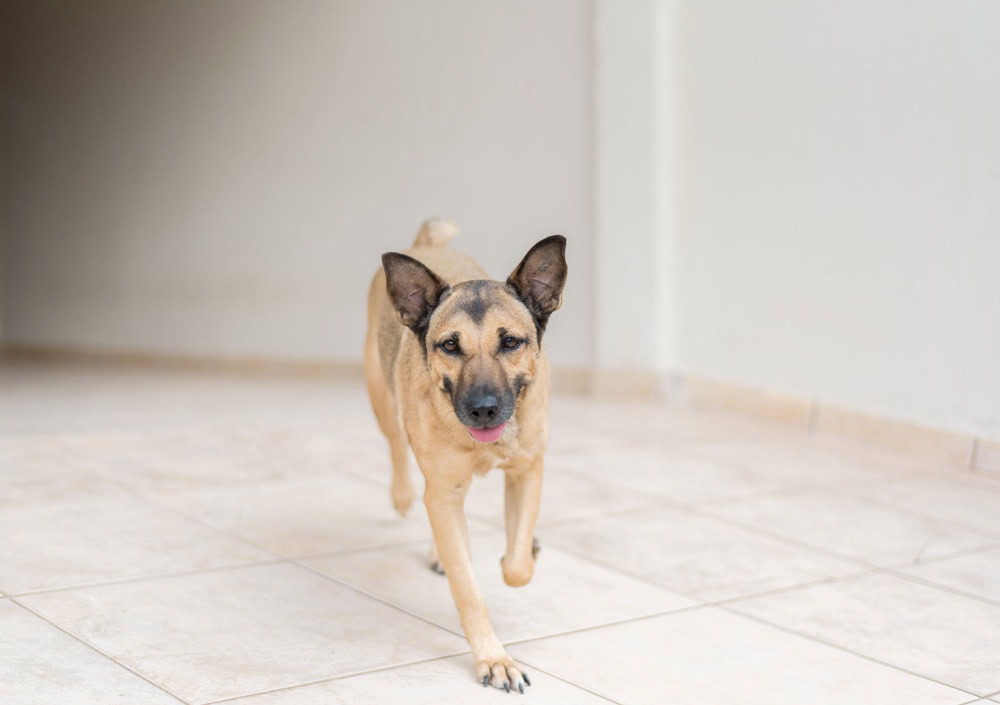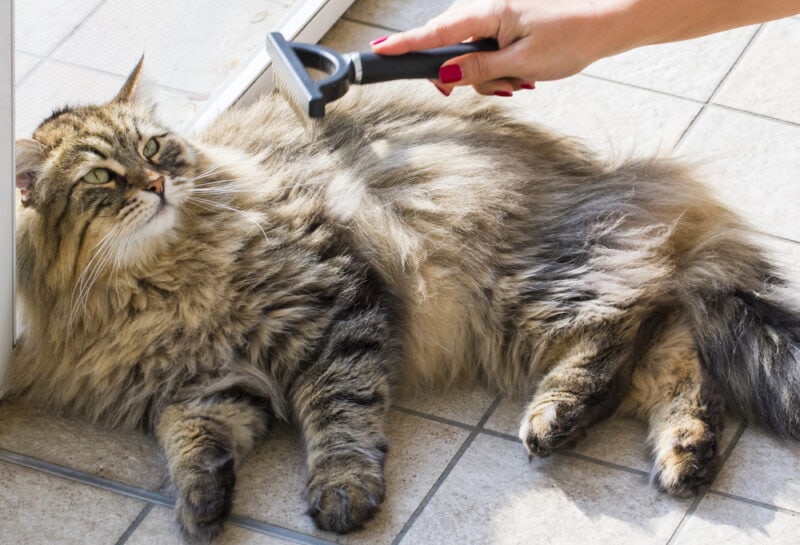VET APPROVED

The information is current and up-to-date in accordance with the latest veterinarian research.
Learn more »Click to Skip Ahead
If your cat recently had an infection, your vet likely prescribed an antibiotic to clear up the issue. But as with any medication, antibiotics can come with a list of side effects, such as tiredness. Every cat will respond differently, so it’s best to watch your cat’s reaction if they’ve never had to take them before.
If you notice that your cat is a little sleepier than usual after beginning antibiotics, you might wonder if the two things correlate. Here we’re going to go over possible side effects of antibiotics and discuss whether tiredness is among them.

Antibiotics & Fatigue
There are different types of antibiotics your vet might prescribe. Each one targets specific ailments and helps with different kinds of infection.
Antibiotics can impact your cat’s energy levels—but all for a good reason. If it seems like your cat has been pretty lethargic after taking antibiotics, you might be entirely right. Your cat’s body is very busy recovering and working with the medicine to clear infection.
Fatigue is among the most common clinical signs observed with antibiotic use, although there can be a laundry list of others. Suppose it seems like your cat is snoozing after dosing; it’s perfectly normal. The extra Z’s might also come with lack of appetite and nausea.
If you find your cat is feeling a little queasy and sleepy, the best thing to do is make them comfortable. Let them relax in a quiet, stress-free area—somewhere they can recuperate in peace. Give them plenty of love, food, and especially water to help ensure hydration during the recovery process.
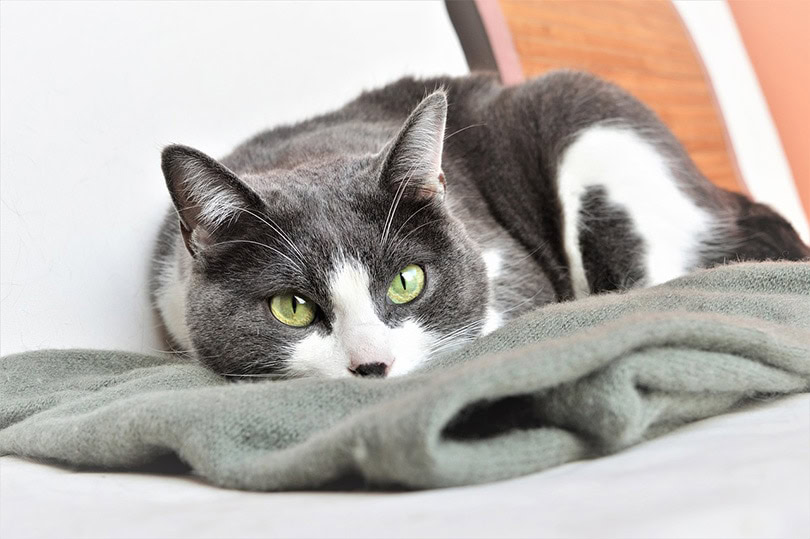
Watch for Dehydration
Proper water intake is essential when your cat is sick. That is especially true if your cat has bouts of vomiting or diarrhea. If your cat is often sleeping, they might not be getting the proper hydration.
Cats need 3.5 to 4.5 ounces of water per 5 pounds of body weight a day to stay happy and healthy. If your cat refuses to drink or sleeps through the day, offer bone broth or liquid cat food to trigger appetite and encourage liquid intake.
How Antibiotics Impact the Gut
Tiredness and hydration aren’t the only things to look out for when your cat takes antibiotics. You also have to protect their gut.
In addition to combating bacteria that cause disease, an antibiotic may also wipe out beneficial bacteria in the gut, which when out of balance, can be especially troubling for a cat with a sensitive stomach.
In fact, it can disrupt the gut so much in certain cats that they display chronic vomiting, diarrhea, or constipation. If you notice any ongoing symptoms, please consult with your veterinarian.
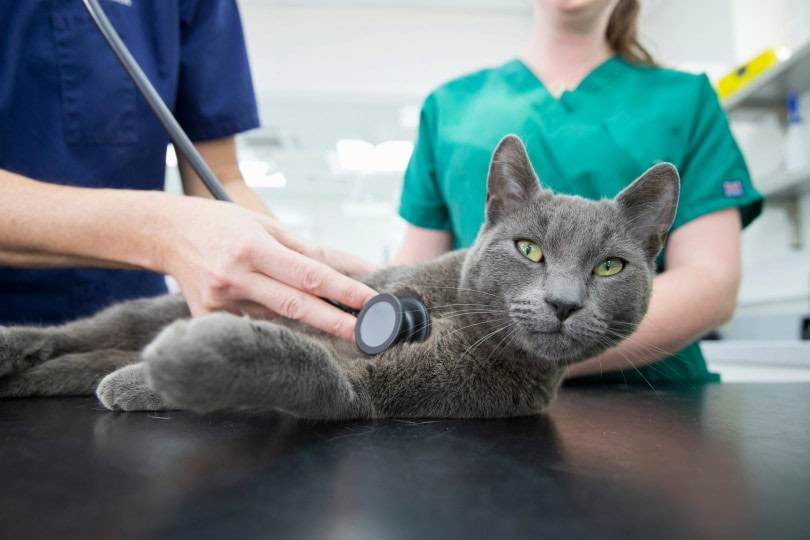
Antibiotic vs. Probiotic
Antibiotics are used to destroy disease-causing bacteria. Probiotics, on the other hand, are live, non-pathogenic bacteria that can be introduced into the gut and produce beneficial effects for a cat.
Tiny microorganisms that normally live in the digestive tract (collectively referred to as the gut microbiome) break down food and smooth the digestive tract. When an antibiotic enters the system to kill the problematic bacteria, it may throw off the proportion of the beneficial gut bacteria.
A good precaution to get your cat back on their feet is to supplement. To help your cat recover during antibiotic use, you can consider probiotic supplements to help restore your pet’s gut flora.
We recommend Purina Pro Plan Veterinary Supplements or similar products. It comes in powder form, easy to mix with wet food. It contains 100,000,000 CFU/g of live probiotics to nourish gut health. It’s a great way to boost your cat’s gut health for a speedy recovery.
Antiviral vs. Antibiotic
There is no one specific cure-all when your cat is sick with a viral infection. Most can be treated with appropriate antibiotics for likely secondary bacterial infection.
Even though supportive care and managing the symptoms constitute the most popular treatment for viral infections, some vets may prescribe an antiviral.
If you still have questions about the effects of antibiotics on dogs, you could consult a vet.

List of Common Antibiotics for Cats & the Side Effects
Amoxicillin-Clavulanate
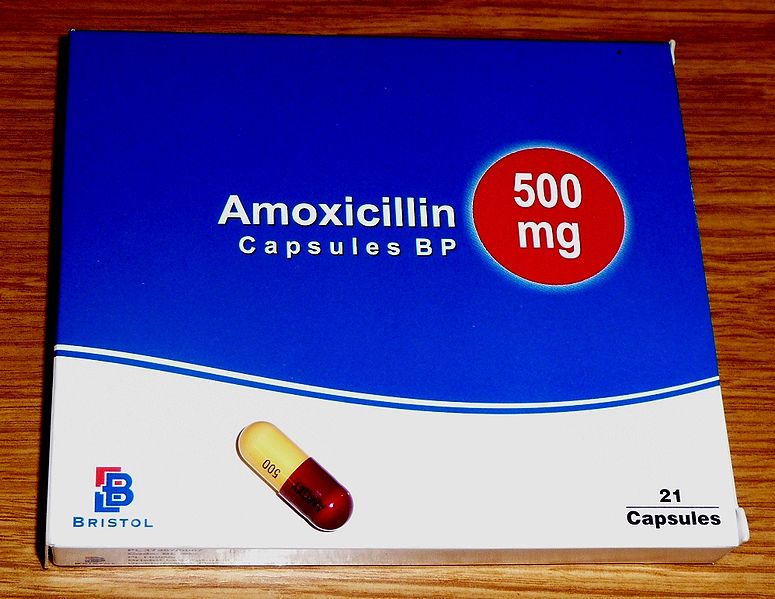
| Other Names | Amoxicillin-Clavulanic acid, Clavamox, Augmentin |
| Target | Skin, respiratory, external wounds |
| Side Effects | Inappetence, vomiting, diarrhea |
Enrofloxacin
| Other Names | Baytril |
| Target | Respiratory, skin, urinary tract |
| Side Effects | Vomiting, diarrhea, lack of appetite |
Metronidazole
| Other Names | Flagyl |
| Target | Gastrointestinal, dental |
| Side Effects | Regurgitation, vomiting, nausea, neurotoxicity, eye twitching, weakness |
Clindamycin
| Other Names | Antirobe |
| Target | Dental, bone, soft tissue |
| Side Effects | Vomiting, bloody diarrhea, lip-smacking |
Antibiotics may come in liquid, pill, cream, or injection forms. Your vet will prescribe the appropriate selection to rid your cat of their ailments.

Why Else Might Your Cat Be Tired?
If your cat is recovering from an infection, their bodies might be a little less active because they are working on getting better. It’s the sickness working its way out, essentially.
Just like when we get sick, cats’ bodies work very hard internally to heal. Even though it doesn’t seem like they are busy, the body is working inside to fight this infection and get your cat back on their feet again.
If antibiotics are the culprit in your kitty’s sleepiness, they should recover before or soon after the medication stops. However, extreme tiredness should never worsen as they take the antibiotic. In fact, after about two days, you should notice improvement for mild to moderate infections.
If lethargy continues, it might raise a cause for concern. It isn’t normal for your cat to continue to act sick after the infection should have cleared. Any change or decline in health needs to be addressed immediately to ensure the antibiotic is doing its job and the condition isn’t spreading.


Final Thoughts
So, now you can be sure that antibiotics might cause a little extra snooze time. But this stage should pass soon as your cat’s health improves. Make sure your cat is warm, comfortable, and relaxed during this process. Soon, they will be fully recovered and back to their usual, crazy selves.
If your cat doesn’t seem to be getting better, it might be time for a follow-up appointment with your vet. Take note of any other symptoms your cat might have aside from the tiredness. Tell your vet about all changes since your visit to get to the issue’s root cause.
Featured Image Credit: Creative Cat Studio, Shutterstock
